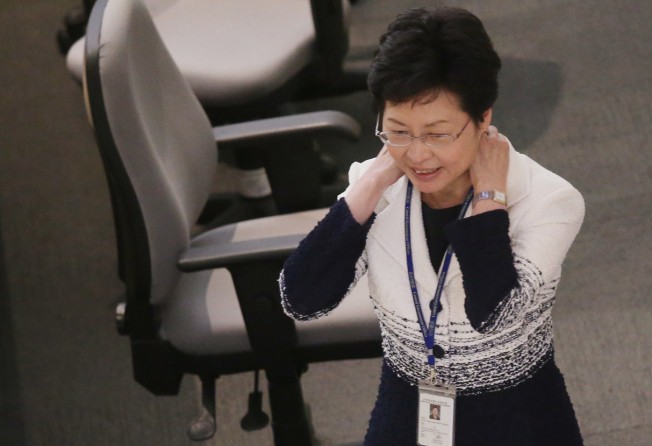Both sides are still poles apart in the debate on political reform

Hong Kong is nowhere near consensus on universal suffrage. Despite a five-month public consultation, the political divide remains just as deep. But however polarised we are, there is one point of consensus - the urgent need for the stakeholders to engage each other and try to iron out their differences.
This is not happening, unfortunately. Although the pan-democrats say they are willing to negotiate with Beijing officials face to face, some have declined to meet representatives from the central government's liaison office in Hong Kong. Until now, Beijing has also adhered to its usual approach of only engaging pro-establishment groups.
Last Wednesday's meeting between Chief Secretary Carrie Lam Cheng Yuet-ngor and the pan-democrats offered a glimmer of hope for much-needed dialogue. Although stopping short of making any undertaking, Lam promised to reflect their wish to meet Beijing officials in the city.
It is still unclear whether the two sides will meet. But for a breakthrough to happen, more goodwill gestures are needed. The prevailing atmosphere does not bode well for a smooth road ahead. In a closed-door meeting with Beijing loyalists in Shenzhen, the chairman of the National People's Congress, Zhang Dejiang , reportedly said improvements would still be possible after the implementation of universal suffrage in 2017. But he also stressed the importance of adhering to the Basic Law, raising concerns that public nomination, a concept deemed as usurping the power of the nominating committee stipulated by the Basic Law, will be formally ruled out when the top legislature lays down the framework for political reform next month. This may expedite the civil disobedience campaign led by the Occupy Central movement.
The green light for changes beyond 2017 certainly has its appeal. Although universal suffrage is set out as the ultimate goal, this does not prevent further changes after implementation. But whether pan-democrats will settle for a less democratic package for the time being remains to be seen.
Consensus can only be reached through communication and compromise. For universal suffrage to be achieved, dialogue is essential. The chief executive's assurance that he will continue to promote exchanges between Beijing and the pan-democrats is to be welcomed. But as he rightly stressed, it takes two to tango. Sincerity from both sides is needed.